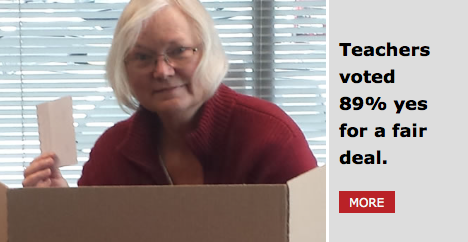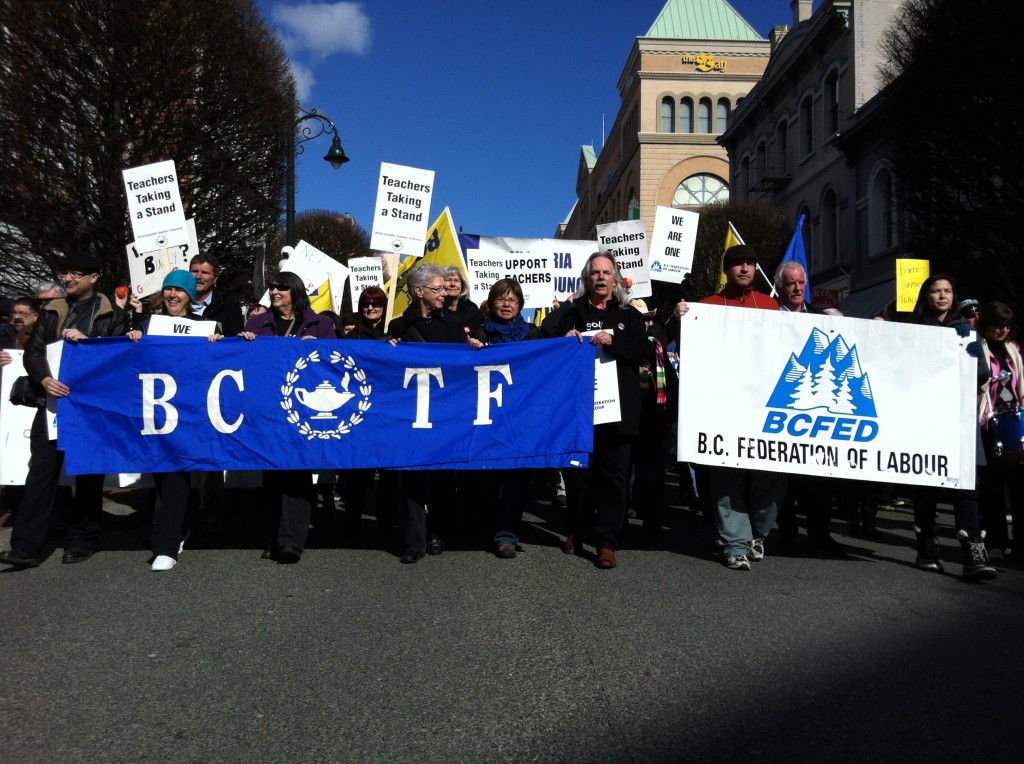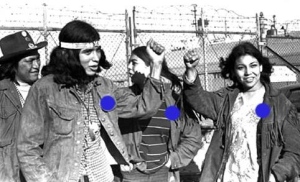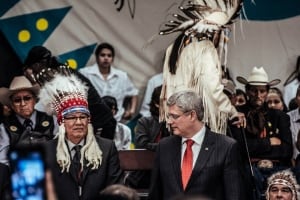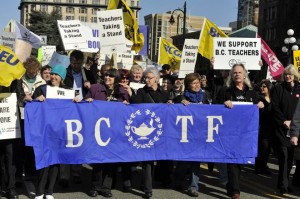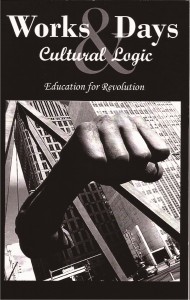Katie Hyslop, The Tyee, March 6, 2014– In a letter to the editor sent to the Creston Valley Advance on March 5, Melanie Joy, a trustee for the Kootenay Lake School District and former chair of the BC Public School Employers Association, said the provincial government bargained in bad faith during the 2011-12 teacher collective agreement negotiations.
Joy, who chaired the negotiating team charged with reaching a deal with the teachers union from 2011 to 2013, said she appreciates current Education Minister Peter Fassbender was not involved in negotiations at the time, but said his assertions that government was fully committed to bargaining a collective agreement with the union are “inconsistent with my experience.”
“By my firsthand recollection, government tactics concerning the Bill 28 reconciliation sessions, and collective bargaining between the BCTF and BCPSEA, were accurately described in Justice Griffin’s BC Supreme Court ruling when she concluded, “Government thought that a teachers strike would give the government a political advantage in imposing legislation that the public might otherwise not support.
This strategy was pursued, in part, by the restrictive bargaining mandate set by government in addition to the net-zero monetary directive. No other part of the public sector was asked to seek so many concessions from a union with no increase in compensation.”
In 2012, the provincial government introduced the Education Improvement Act, which prevented teachers from negotiating class size and composition limits until after an agreement had been signed, instead setting government’s own class size limits. It also installed a mediator — Charles Jago, a BC Liberal Party donor and author of a 2006 BC Progress Board report that said the province’s education system was “constrained by legislated processes and provisions as well as by labour agreements” — to help reach an agreement between the teachers’ union and its employers.
Joy said the employers’ association and Jago tried their best, and succeeded, in reaching a negotiated deal. But government was disappointed with the effort.
“Although the negotiated agreement met the monetary mandate, government representatives informed us of their dissatisfaction with the agreement, including the lost opportunity, now identified in the recent judgment, to “impose concessions which advance education initiatives” through legislation triggered by the failure of collective bargaining.”
Minister Fassbender’s public statements about wanting to reach a long-term negotiated collective agreement in the current round of bargaining is undermined by government’s actions in this area, said Joy, referring specifically to government’s replacement of the employers’ association’s negotiating team this past summer with one government negotiator.
“Despite how pleased the minister now claims to be with the negotiated agreement, the facts that this government 1) moved swiftly after the election to replace elected school trustees on the [association’s] board with its own public administrator, 2) appoint a government negotiator in the midstream of current [union] bargaining, and 3) replace the senior staff at [the association], tell a very different story.”
Given the ongoing teachers strike action vote, Joy concluded her letter by advising the government to heed Justice Susan Griffin’s recent decision on the unconstitutionality of the Education Improvement Act.
“In the future, it might be wise to follow Griffin’s reflection that perhaps, “This affirms the wisdom of the Korbin labour relations model: government is removed from the direct bargaining relationship with public sector employees and bargaining takes place with the employer association, which has a more direct interest in reaching agreement.”
Read her entire letter here. Results of the union’s strike action vote will be announced at a BC Teachers’ Federation press conference tonight at 9:30 p.m.
Read More: The Tyee

 Follow
Follow
